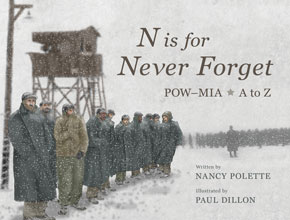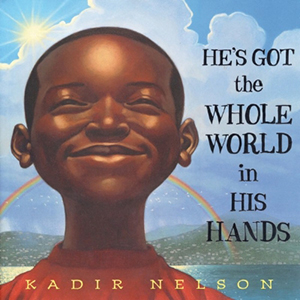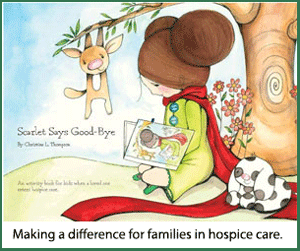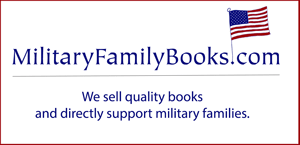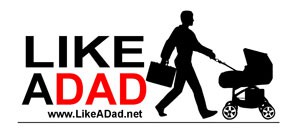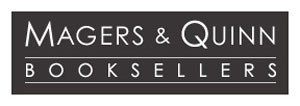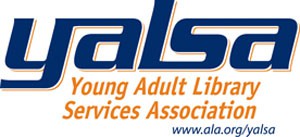Independent bookstores in the United States have written a comeback story over the past decade, and now they’re facing a new chapter—the one about the coronavirus. To navigate the pandemic plot twist, booksellers are turning once again to the community connections and personal service that have helped fuel the indie revival amid big-box competitors.

Annie Jones, owner of The Bookshelf, takes health precautions for the customers who come to her Georgia bookstore, including limited hours and mask requirements. Photo courtesy of The Bookshelf.
Annie Jones, owner of The Bookshelf in Thomasville, Georgia, said her store has been able to reach current customers and even find news ones through their podcast, From the Front Porch, and an active social media presence—both in place well before the pandemic.
“We’ve had a podcast since 2013 and have worked hard to attract listeners and develop an audience,” says Annie. “Our weekly episodes keep us consistently in the ears and minds of potential customers. When the pandemic hit, people wanted to come to the aid of small businesses. Podcast listeners were already getting book recommendations from us, so it was a relatively easy transition for them to begin buying from us.”
Main Street Reads in Summerville, South Carolina, opened in March of 2019 with local author signings every Saturday, weekly writer’s groups, book clubs, and even live music nights that encouraged locals to think of the store as a place to gather as well as buy books. Owner Shari Stauch says her store’s community connections were instrumental in serving and keeping customers when COVID-19 curtailed in-person shopping.
Shari’s store was closed to customers for a couple of weeks in March, and during that time she remained open for phone and curbside sales. It was new and unnerving territory.
“I remember the first person calling and saying, ‘Can I still order a book? We want to support our local businesses,’ and I about cried,” she says. “It was so warm—it was genuine, and I was so ridiculously proud of this town and this community, and I have been ever since.”
The community connections created by booksellers like Annie and Shari are purposeful and part of a business model that brought indie bookstores through tough times. When Amazon.com launched in 1995, the number of independent bookstores in the U.S. had reached an all-time high, according to the American Booksellers Association, a nonprofit trade association for independent bookstores. The numbers of independent bookstores continued to decline until 2009, when the ABA reported fewer than 1,700 member stores. That year marked an unexpected turnaround, however, and by 2019, the number of bookstores had nearly doubled.
Ryan Raffaelli, a professor at Harvard Business School, spent several years following this resurgence, visiting bookstores across the U.S. to analyze the revival of independent bookstores. He published his findings shortly before the pandemic shutdown, noting that small bookstores were thriving because they were adept at what he called the three C’s: community, curation, and convening. Indie bookstores that were popular and profitable, he said, were connecting with their communities, curating book selections for customers, and giving people a reason to convene in their stores. In other words, small local stores capitalized on what they could provide that huge competitors could not: relationships and personal service.
At The Bookshelf, for example, along with the podcast, Annie also has a strong social media presence and connections with customers. Having a ready-made audience and the technology to create virtual events was valuable when the store was closed for in-person shopping from mid-March through May.
“Because of Instagram and the podcast, we actually had already done some virtual events (before the pandemic),” says Annie. “It wasn’t quite as anxiety-inducing to have to pivot to all these different things, because we were already doing some of them.”
“We never had to shut down operations, which was a real gift,” says Annie. When the doors were closed, she and her staff continued to take phone orders for curbside pickup, and orders from their online store continued as well.
The Bookshelf has been offering curated book choices in its online store for several years, including book-of-the-month subscriptions. Customers can choose from subscriptions curated by staff members, customized with the number of months and how many books per month. Annie said the pandemic brought an uptick in the popularity of subscriptions, which can be shipped or picked up at the store.
“People saw it as a way to support small businesses when they couldn’t go in and shop, so we’ve seen the program grow,” says Annie.
Although The Bookshelf has not returned to in-store events, it has an outdoor story-time on Saturdays, virtual book discussions, and the weekly podcast.
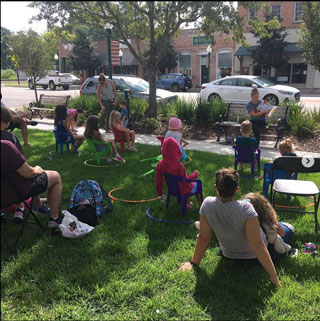
Main Street Reads holds weekly story time for kids—with hula hoops to help with social distancing—on the town square across the street from their store in South Carolina. Photo courtesy of Main Street Reads.
Shari said a large part of the business at Main Street Reads before the pandemic had been from events and tourism, revenue streams that quickly dried up when pandemic precautions went into effect. Yet, Share said her sales were only down twenty-five to thirty percent during the shutdown.
“We’re back up to where we were this time last year,” she says, “and that is a measure of the support we’ve had from our community.”
It’s also a measure of the ways stores like Shari’s stay connected to their communities, staying flexible and creative. Main Street Reads has also kept up its weekly children’s story time by moving it outside. Young readers meet up each Wednesday morning on the town square across the street from the store. The store also has writer’s groups and multiple book clubs meeting on various days with limited in-person participants and virtual options for anyone who wants to join remotely.
Whirlwind Book Bar in Altus, Oklahoma, has diversified offerings, including books, wine, and beer. They also share space in their renovated historic building with a bakery. In normal times, these factors would attract more shoppers to the store, but with pandemic restrictions, the variety of services complicated the decision about when and how to reopen.
“Ultimately, we decided to close the building and use our time to make cloth masks to donate to the local hospital and nursing homes,” says owner Heather Babcock. “At that point in time we decided to be a part of the community, to make a positive difference rather than worry about the loss of sales. It was probably the best decision we could have made.”
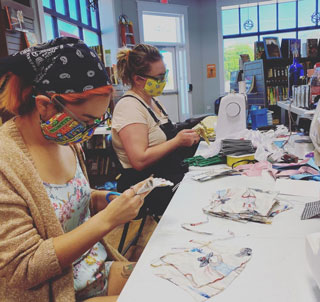
While the Whirlwind Book Bar was closed in the early days of the pandemic, the staff sewed masks for nursing homes and hospitals in their Oklahoma community. Photo courtesy of Whirlwind Book Bar.
Whirlwind took online and phone orders for books and beverages until opening its doors again in mid-May. The store now offers limited-capacity shopping, an open patio area, and kids’ corner at half capacity, with plans to restart smaller events throughout the fall and the holidays.
Pandemic limitations have not been the only influences on book sales and reading choices this year. VaLinda Miller’s store, Turning Page Bookshop in Goose Creek, South Carolina, experienced a surge in sales after the nationwide anti-racist protests in June. Turning Page was featured, alongside other black-owned stores, in publications from The New York Times and O, The Oprah Magazine, to VaLinda’s local paper, The [Charleston] Post and Courier. Turning Page had just re-opened for curbside pick-up and deliveries in June, when requests for anti-racist books and books by Black authors began flooding in.
“It was amazing how many people called and emailed and ordered books,” says VaLinda. “We were mailing out boxes every week,” she says. “We still are mailing a lot of books almost every day.”
Turning Page now has limited hours for in-store shopping with masks required. VaLinda said she used some of her down time to update her store website, streamline her mailing lists, and communicate more with her customers on social media. For example, she takes Instagram followers on regular video walks with her dog, Perry Mason.
“We did a lot of social media to let people know we’re hanging in there and praying for everybody,” she says. “We were determined to stay positive. This has been a very overwhelming year.”
VaLinda said she is happy to recommend all kinds of books that bring comfort to her customers, whatever they are going through.
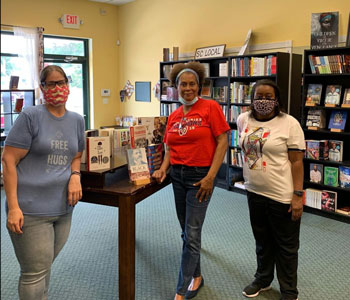
VaLinda Miller (center) owner of Turning Page Bookshop in South Carolina, in her store with local librarian friends Theresa Wagner and Maya Hollinshead. Photo courtesy of Turning Page Bookshop.
“I want to have in my store what I want to read. We do anti-racists books, books by Black authors and Hispanic authors, books by everybody,” says VaLinda. “Maybe (customers) need something funny or a cozy mystery, a romance or a Christian book. I want them to remember when they were growing up and went to bookstores and libraries that had connection to their communities.”
Like most booksellers, Annie says The Bookshelf also saw increased sales of racial justice books and books by Black authors.
“We’re a small store in a small town, so it was gratifying to see that although the world is really hard and scary and sad right now, people want to learn and grow and change,” she says. Other trends she noticed were increased interests in post-apocalyptic literature and nostalgic titles.
“When Ruth Bader Ginsberg died, there was an increase in sales of books about her, both her biography and also kids’ books about her,” Annie says. “I think when there’s a crisis or loss, one of the things we look to is literature. That’s certainly true in my life too.”
Through the pandemic, many small bookstores have discovered customers beyond their own locales. Both Annie and VaLinda say they’ve seen a growth in their customer bases, as readers from other places call in or shop online. Both stores offer online shopping at their websites.
Shari says Main Street Reads does not have an online store but is affiliated with Bookshop.org, an online book retailer that returns ten percent of all its profits to independent bookstores. Booksellers like Main Street Reads that are affiliates receive a larger percentage when shoppers designate their store. Profit from undesignated orders is evenly distributed among independent bookstores, even those that don’t use Bookshop. Since launching in January 2020, Bookshop estimates it has raised more than $7.3 million for independent bookstores, and Shari says it has been beneficial for her store.
“Orders started coming up right away (through Bookshop) which was wonderful,” says Shari. “It saved us in those early months for sure. It made a huge, huge difference.”
Another online platform for supporting independent bookstores is Libro.fm, which offers readers a way to purchase audiobooks through local bookstores. Through it all, bookstores and booksellers are proving resilient, hopeful that the community connections they’ve built will add another chapter to their comeback story.
“There’s a lot of grief that comes with this year. Things we’ve had to let go of and kind of shelve,” says Annie. “We love nothing more than being a community gathering place and to have people in our store, but for now … we’re having to choose to find the fun, choose to see the joy.”
The Bookshelf (Thomasville, GA)
Web: BookshelfThomasville.com
Podcast: BookshelfThomasville/podcast-1
Facebook: @BookshelfThomasville
Instagram: @BookshelfTville
Main Street Reads (Summerville, SC)
Web: MainStreetReads.com
Facebook: @MainStreetReads
Twitter: @MainStreetReads
Instagram: @MainStreetReads
LinkedIn: /company/Main-Street-Reads
Whirlwind Book Bar (Altus, OK)
Web: WhirlwindBookBar.com
Facebook: @WhirlwindBookBar
Instagram: @Whirlwind_Book_Bar
Turning Page Bookshop (Goose Creek, SC)
Web: TurningPageBookshop.com
Facebook: @TurningPageBookshop
Twitter: @TurningPageSC
Instagram: @TurningPageBookshop
Ryan Rafaelli
At Harvard: Faculty profile
Twitter: @RyanLRaffaelli
American Booksellers Association
Web: Bookweb.org
Facebook: @AmericanBooksellers
Twitter: @ABAbook
Instagram @AmericanBooksellers
Bookshop.org
Web: Bookshop.org
Facebook: @Bookshop.org
Twitter: @Bookshop_org
Instagram: @Bookshop_org
Libro.fm
Web: Libro.fm
Facebook: @Librofm
Twitter: @Librofm
Instagram: @Librofm
Several social media campaigns show support for independent bookstores, including #SaveIndieBookstores, #BoxedOut, and #ShopIndie. As a reader, the best way to support indie booksellers is to buy your books from your local community bookstore. Not sure what indie bookshops are near you? Check out the bookseller map on Bookshop Store Locator or ABA Member Directory. You can also order online via Bookshop.org without designating a specific store, and your purchase will contribute to the revenue-share pool for independent bookstores.
Terri Barnes is the author of Spouse Calls: Messages From a Military Life, and she can often be found at her local bookstore. She is the senior editor for Elva Resa Publishing, which specializes in resources for military families.
This article was first published November 2020.


